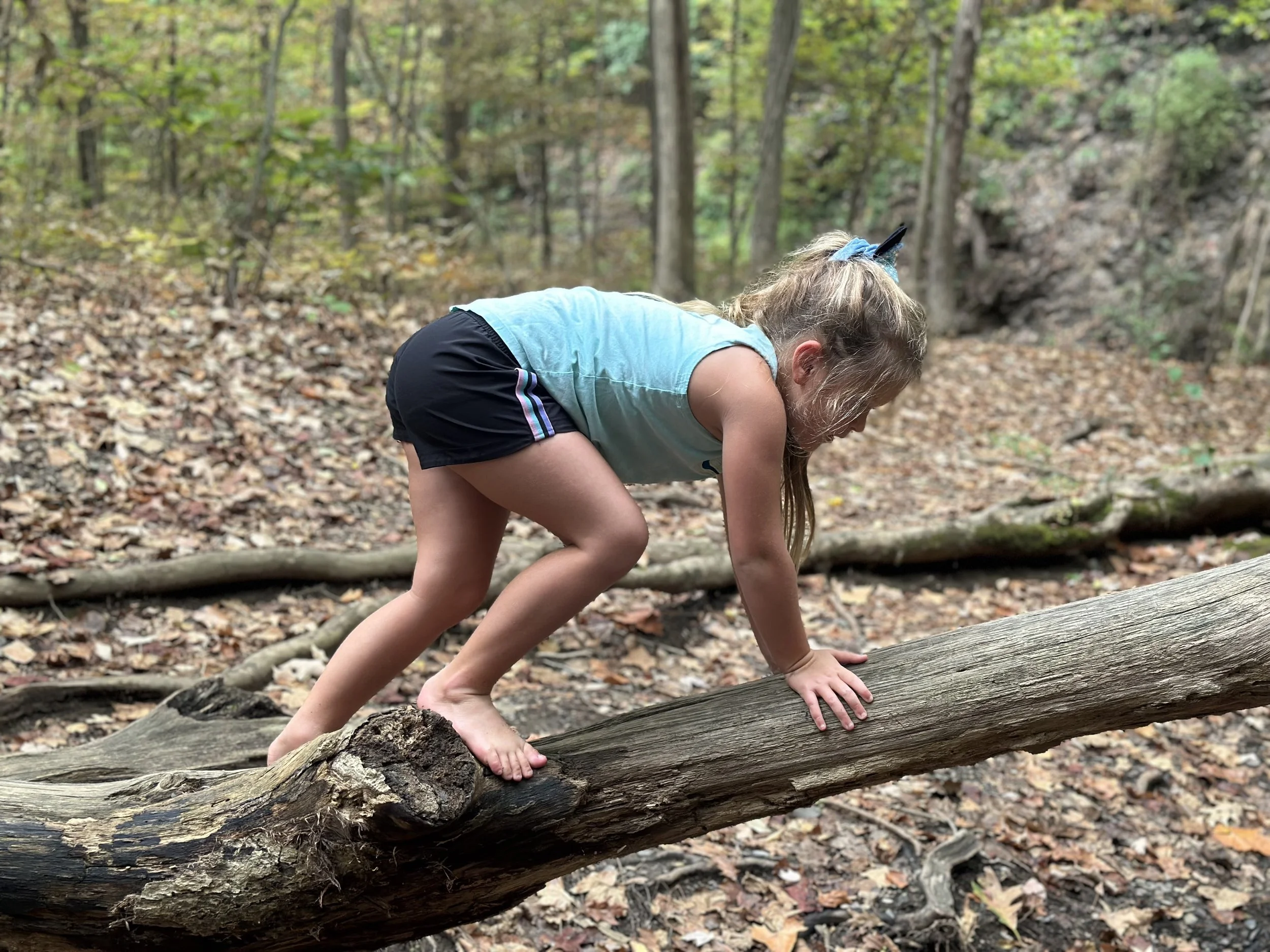Risky Play
Image of a child climbing a log elevated from the ground.
What is risky play?
Risky play is any play that is thrilling or exciting and involves some risk of injury. Key factors of risky play include: height and elevation, speed and momentum, use of risky or adult tools, interaction with natural elements, play with a chance of getting lost, or rough and tumble play. Some of these elements are more commonly encountered in outdoor play and therapy.
Many parents and caregivers of children are naturally hesitant about risky play. Read on to learn about the benefits and ways to support kids…
What are the benefits of risky play for kids?
Studies have shown that risky play helps children develop:
Resilience
Executive functioning skills
Self-confidence
Risk assessment abilities
Reduces the likelihood of phobias in adulthood
Improved physical-motor competence
Spatial-orientation skills
Enhanced social skills
Overall improved health
Isn’t risky play dangerous?
Studies show that the likelihood of injury is incredibly low. It would take a child 3 hours a day of engaging in risky play for 10 years before they were likely to get an injury that required medical attention.
Although parents have good intentions when trying to remove risk for their children, there is a limit to benefits and can actually have negative effects over the long run.
Studies show that by having the opportunity to navigate risky play situations children actually have decreased risk of sustaining an injury due to increased awareness and problem solving.
How can parents/caregivers respond differently?
Ways to facilitate risky play:
Use the 17 second rule when possible: When you feel uneasy about how your child is playing, step back for 17 seconds and observe what they are doing before intervening.
Ditch the playground and structured play for natural landscapes, organically designed play structures, and moveable loose parts.
Ask leading questions to allow children to assess risk themselves and to come up with solutions. Avoid using the general phrase “Be careful!” which isn’t specific and doesn’t help children plan ahead…if they hear it too often, they may tune you out. Some alternate phrases to foster more awareness may include:
“Notice how…..”
“Do you see…..”
“What’s your plan?”
“What can you use…”
*Thanks to Lauren Stuart, 2024 OT Fieldwork Student with Forestways OT, for assisting with the information for this post.
